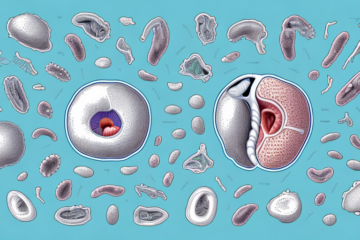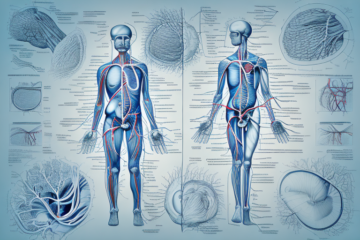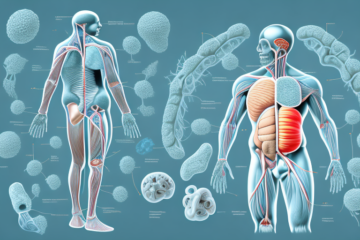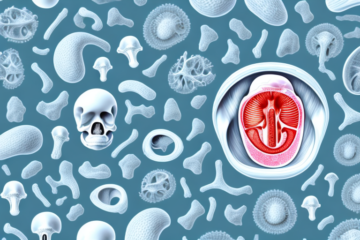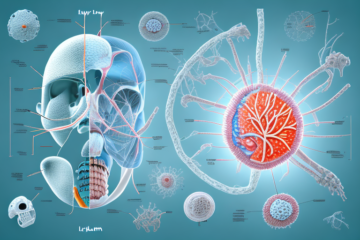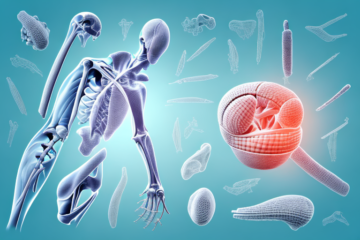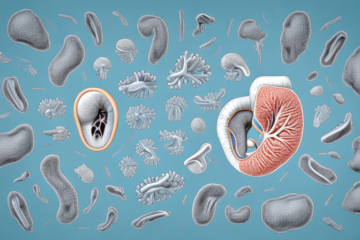The heart is an essential organ that serves as the epicenter of the circulatory system, which moves blood throughout the body. The heart is like a pump that circulates blood through the vessels to provide the body with oxygen and nutrients while removing waste products. But how does the heart function, and what is the structure of this vital organ? Here, we will provide you with everything you need to know about the heart, its anatomy, and its function.
The Importance Of The Heart In The Circulatory System
The heart is the focal point of the circulatory system, essential for the proper functioning of the body. The heart pumps blood to various parts of the body, ensuring their oxygenation and nourishment. The heart’s contractions, also known as heartbeats, create pressure within the blood vessels, driving blood circulation. Any malfunction of the heart leads to blood circulation disturbances and can cause severe consequences, including death.
Moreover, the heart is not just a pump; it is a complex organ that plays a crucial role in regulating blood pressure, heart rate, and blood volume. The heart achieves this by responding to various signals from the nervous and endocrine systems, which help it adjust its output to meet the body’s changing demands. For instance, during exercise, the heart rate increases to supply more oxygen and nutrients to the muscles, while at rest, it slows down to conserve energy. Therefore, maintaining a healthy heart is vital for overall health and well-being.
Understanding The Anatomy Of The Heart
The heart consists of four chambers, two ventricles, and two atria. The atria are situated at the top and receive incoming blood from the veins, while the ventricles are located at the bottom of the heart and propel the blood out towards the arteries. The heart also has four valves, which regulate the blood flow in and out of the chambers. The heart’s muscular wall, known as the myocardium, helps the heart contract rhythmic and forceful contractions. Any malfunction in the heart’s valves or the myocardium can lead to severe heart conditions.
The heart is a vital organ that pumps blood throughout the body, delivering oxygen and nutrients to the cells and removing waste products. It beats approximately 100,000 times a day and pumps around 2,000 gallons of blood daily. The heart’s ability to function efficiently is crucial for maintaining good health and preventing cardiovascular diseases.
Several factors can affect the heart’s health, including lifestyle choices such as diet, exercise, and smoking. Regular physical activity and a balanced diet can help keep the heart healthy and reduce the risk of heart disease. It is also essential to manage stress levels and get enough sleep to maintain a healthy heart.
How Blood Flows Through The Heart
The heart’s functioning starts with the contraction of the atria, which pumps blood into the ventricles. Once the ventricles are filled, they contract, propelling blood out through the arteries. The blood then travels through the arteries to reach various parts of the body. As the blood gives up oxygen and nutrients to the tissues, it collects waste products such as carbon dioxide and waste nutrients and returns this deoxygenated blood to the heart through the veins. The deoxygenated blood enters the right atrium and is then pumped to the lungs for oxygenation. Once oxygenated, the blood returns to the heart, entering the left atrium, from where it is propelled through the aorta and out to the body.
This process of blood flow through the heart is essential for the proper functioning of the body. Any disruption in this process can lead to serious health issues such as heart attacks, strokes, and other cardiovascular diseases. It is important to maintain a healthy lifestyle, including regular exercise and a balanced diet, to keep the heart functioning properly and reduce the risk of these health issues.
The Role Of Valves In Heart Function
The heart’s valves play a critical role in maintaining blood flow direction and preventing backward blood flow. The valves open and close during the heart’s contractions, allowing blood to pass from one chamber to the other. Any malfunction or damage to these valves affects the blood’s flow direction and leads to improper circulation.
There are four valves in the heart: the tricuspid valve, pulmonary valve, mitral valve, and aortic valve. Each valve has a specific function and location within the heart. The tricuspid valve is located between the right atrium and right ventricle, while the pulmonary valve is located between the right ventricle and pulmonary artery. The mitral valve is located between the left atrium and left ventricle, and the aortic valve is located between the left ventricle and aorta. These valves work together to ensure proper blood flow and circulation throughout the body.
Common Cardiovascular Diseases And Their Impact On The Heart
Several cardiovascular diseases affect the functioning of the heart, including coronary artery disease, heart failure, and arrhythmias. Coronary artery disease leads to the narrowing of the arteries supplying the heart, leading to inadequate blood supply leading to heart attack or angina. Heart failure is a condition that affects the muscles of the heart, leading to weak contractions, leading to inadequate blood circulation. Arrhythmias are conditions that lead to abnormal heart rhythms, which can cause heart palpitations or other severe symptoms.
Another common cardiovascular disease that affects the heart is hypertension, also known as high blood pressure. Hypertension can cause damage to the blood vessels and arteries, leading to an increased risk of heart attack, stroke, and heart failure. It is essential to manage hypertension through lifestyle changes and medication to prevent further damage to the heart.
In addition to these diseases, congenital heart defects are also prevalent, affecting the heart’s structure and function from birth. These defects can range from mild to severe and may require surgery or other medical interventions to correct. It is crucial to diagnose and treat congenital heart defects early to prevent complications and improve the quality of life for those affected.
Risk Factors For Heart Disease And How To Prevent Them
Several risk factors contribute to heart diseases, including smoking, high blood pressure, high cholesterol, obesity, and a sedentary lifestyle. Lifestyle modifications such as regular exercise, a healthy diet, maintaining healthy body weight, and avoiding smoking can help reduce the risk of heart disease.
In addition to lifestyle modifications, there are also medical interventions that can help prevent heart disease. These include medications to control high blood pressure and cholesterol levels, as well as procedures such as angioplasty and bypass surgery for those with severe blockages in their arteries. It is important to work with a healthcare provider to determine the best course of action for preventing heart disease based on individual risk factors and medical history.
Symptoms Of A Heart Attack: What You Need To Know
The manifestation of a heart attack can vary depending on the individual, some common symptoms include crushing chest pain, shortness of breath, sweating, dizziness, and nausea. If you experience any of these symptoms, seek immediate medical attention.
It is important to note that not all heart attacks present with the same symptoms. Some people may experience less common symptoms such as pain or discomfort in the jaw, neck, back, or arms, as well as indigestion, heartburn, or fatigue. Women may also experience different symptoms than men, such as shortness of breath, nausea or vomiting, and back or jaw pain. It is important to be aware of all possible symptoms and to seek medical attention if you suspect you may be having a heart attack.
Diagnosing And Treating Heart Conditions
Several diagnostic tests such as electrocardiograms, imaging tests, and blood tests can help diagnose heart conditions correctly. Medications such as beta-blockers, statins, and blood-thinning medications can help manage heart conditions. Suppose medications fail to work, or if the heart condition is severe; surgical interventions such as angioplasty, bypass surgery, or valve repair surgery may be required.
It is essential to note that lifestyle changes can also play a significant role in managing heart conditions. A healthy diet, regular exercise, and stress management techniques can help improve heart health and reduce the risk of heart disease. Additionally, quitting smoking and limiting alcohol consumption can also have a positive impact on heart health.
Furthermore, it is crucial to monitor and manage other health conditions that can contribute to heart disease, such as high blood pressure, high cholesterol, and diabetes. Regular check-ups with a healthcare provider can help identify and manage these conditions, reducing the risk of heart disease and improving overall health.
Lifestyle Changes To Improve Your Heart Health
Lifestyle modifications such as increasing physical activity, quitting smoking, reducing stress, and maintaining a healthy diet can improve heart health. These modifications can help prevent heart disease or manage existing problems.
One of the most effective lifestyle changes to improve heart health is regular exercise. Exercise helps to strengthen the heart muscle, lower blood pressure, and improve circulation. It is recommended to engage in at least 30 minutes of moderate-intensity exercise, such as brisk walking, cycling, or swimming, on most days of the week.
In addition to exercise, reducing stress levels can also have a positive impact on heart health. Chronic stress can lead to high blood pressure and an increased risk of heart disease. Techniques such as meditation, deep breathing, and yoga can help to reduce stress levels and promote relaxation.
How Exercise Can Benefit Your Heart
Regular exercise, such as aerobic exercise, can help improve heart health, reducing the risk of heart disease. Exercise helps improve heart function by strengthening its muscles, improving blood flow, and reducing inflammation.
In addition to these benefits, exercise can also help lower blood pressure and cholesterol levels, which are both risk factors for heart disease. Exercise can also help with weight management, which can further reduce the risk of heart disease. It is recommended to aim for at least 150 minutes of moderate-intensity exercise per week to see these benefits.
Foods That Boost Heart Health
Several foods can boost heart health, including fish, berries, nuts, legumes, whole grains, and leafy green vegetables. These foods contain compounds such as omega-3, fiber, antioxidants, and vitamins that support heart health.
In addition to these foods, it is also important to limit your intake of saturated and trans fats, as well as added sugars and sodium. These can increase your risk of heart disease and other health problems. Instead, opt for lean proteins, such as chicken and turkey, and choose low-fat or fat-free dairy products. Additionally, incorporating physical activity into your daily routine can also improve heart health.
Supplements That Support Cardiovascular Health
Supplements such as omega-3, CoQ10, and magnesium can help improve heart health. However, always speak to your healthcare provider before starting any supplements.
In addition to omega-3, CoQ10, and magnesium, there are other supplements that can support cardiovascular health. These include vitamin D, garlic, and hawthorn berry. Vitamin D helps regulate blood pressure and can reduce the risk of heart disease. Garlic has been shown to lower cholesterol levels and improve blood flow. Hawthorn berry can help improve circulation and reduce blood pressure. As with any supplement, it is important to consult with your healthcare provider before adding them to your regimen.
Innovations In Cardiac Care: New Technologies And Treatments
Technology has improved cardiac care, with new treatments such as transcatheter aortic valve replacement and regenerative therapies aimed at repairing damaged heart tissue. Researchers are also developing innovative technologies, such as wearable monitors and artificial intelligence for data analysis, to improve early detection and management of heart diseases.
Additionally, advancements in telemedicine have allowed for remote monitoring and consultation for patients with heart conditions, reducing the need for frequent hospital visits and improving access to care for those in remote or underserved areas. These technologies have the potential to revolutionize cardiac care and improve outcomes for patients worldwide.
Caring For Your Emotional Health After A Heart Condition Diagnosis
A heart condition can be overwhelming, leading to stress and emotional turmoil. Therefore, it’s essential to care for your emotional well-being by seeking the necessary emotional support, speaking to your healthcare provider about the potential psychological impact, and practicing self-care and mindfulness techniques.
In conclusion, the heart functions as the epicenter of the circulatory system and is essential for providing the body with oxygen and nutrients. A healthy heart requires maintaining a healthy lifestyle, recognizing the symptoms of heart disease, and seeking early treatment for any heart conditions. With proper care, you can keep your heart healthy and prevent severe consequences.
It’s important to note that emotional health can have a significant impact on physical health, especially for those with heart conditions. Studies have shown that individuals with depression or anxiety are at a higher risk of developing heart disease and experiencing adverse cardiac events. Therefore, taking care of your emotional well-being is just as crucial as taking care of your physical health.
Additionally, joining a support group or seeking counseling can be beneficial for individuals with heart conditions. Talking to others who have gone through similar experiences can provide a sense of community and understanding. Counseling can also help individuals develop coping strategies and manage any anxiety or depression related to their heart condition diagnosis.


